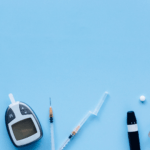There aren’t too many topics that really get me riled up anymore. I’m too old and too busy to care about debating the merits of stem cell research, the legalization of marijuana, or Proposition 8. Sure, I have strong opinions on all of these topics and more, but they are just that – opinions. Furthermore, there are enough other people out there, some reasonable, most irrational, already fighting those fights. So what does get me riled up? Every time I hear someone “assert” that saturated fat and dietary cholesterol lead to heart disease I have to bite my tongue. Why do I bite my tongue?
As Frederic Bastiat once said,
“We must admit that our opponents in this argument have a marked advantage over us. They need only a few words to set forth a half-truth; whereas, in order to show that it is a half-truth, we have to resort to long and arid dissertations.”
This is, unfortunately, quite true. When I’m at a dinner party and someone starts lecturing the table about the perils of saturated fat (or red meat, or eggs, or fill-in-the-blank), I’m at the point – after years of being kicked under the table by my wife – of just asking the “authority” at the table one question: Why do you believe this is true?
I figure, put the burden of proof on them, right? This week, and I apologize for how long overdue this post is, I’m going to get into the details of how this country (and many others who followed our lead) came to believe one of the most pervasive myths in the entire field of nutrition.
To write it all out would require a tome. In fact, such a tome already exists. It’s called Good Calories, Bad Calories. But for most people, especially the “authorities” who already “know” the answer, it’s a complex and lengthy book. Furthermore, it’s not exactly something you can just whip out at a dinner party.
I recently gave a talk at the UCSD medical school. I was asked to give a talk about “ethics.” While I have no professional training as an ethicist, I still think I have a good idea about what is and is not ethical. As I’ve learned more and more about this topic, it appears to me that the state of our current nutritional environment, with food policies based on just about everything but rigorous, experimental science, couldn’t make much ethical sense. I’m pretty sure if Plato, Aristotle, and Nietzsche were still around they’d be disgusted with how we got here. So, I was happy to take this opportunity to speak with a group of thought leaders on this important topic.
I gave a more recent (circa 2015) talk on the subject which captures both the video and and my slides, which I’ll share below. It’s about an hour long. But as Bastiat essentially said, if you want to overturn half-truths, you can’t do it with bumper stickers. Hopefully you’ll find this talk informative and useful for your dinner party discussions.
The link to this video can also be found here, for those reading this post on email or those wishing to view it in a larger format.
Photo by Irina Blok on Unsplash






I have type 2 diabetes, high cholesterol , high blood pressure , hypo thyroid . I also, have a pancreatic cyst that has been biopsyed and is negative for cancer and being kept an eye in. When the doctor did an EUS to biopsy the cyst, he nicked the pancreas which set me into pancreatitis and I was hospitalized for 10 days. My doctor said for me to be on a very low fat diet. So I am afraid to start this diet. I hope you can shed some light for me as I am so confused..
Peter,
Not that I’m a regular reader of Skeptic magazine or anything, but I happened to see an interesting article in their vol. 20, #2 issue recently on The Diet-Heart Hypothesis. Just wondering if you read it and what your take on it might be.
Thanks.
Hello,
I recently was turned onto this website by listening to Tim Ferriss and Jocko Willink. My question is in regards to High Cholesterol and a High Liver Enzyme count. I have been battling these numbers since I was a teenager and even during a period of time when I was really good shape. Now, at 29 years old I still have these numbers when I get blood work done. I’ve since put on a lot of unwanted weight. The weight gain is my own fault as I became less interested in the gym and exercising. Now, I feel like I have to do something. Thoughts on where I should start?
Travis, you should definitely have someone make sure you don’t have a condition called non-alcoholic fatty liver disease (NAFLD). If so, the best treatment seems to be complete removal of fructose from the diet, but clinical trials are still pending.
Hi Peter – Hope you are doing well. It’s been awhile since I’ve read your blog, but I re-read posts from time to time to see if I have a better understanding or see things in a new light. I don’t have a medical background, so it’s a bit technical for me at times. However, for the most part, I’m able to follow. There’s one hang up that’s bugging me however… When you eat carbs/sugar, insulin tells your brain to “keep eating” and then stores excess energy as fat for future use (when, say, food is scarce) through lipogenesis. When you eat dietary fat, leptin eventually signals to your brain to stop eating because you are “full.” So does this mean that your body has no way to store dietary fat as adipose tissue? If so, how does your body digest excess fat? Or does leptin step in before you can eat too much excess fat? If, so how come? That last question is the one that’s lingering with me. If fat is your body’s preferred source of energy, why not have a way to store it without lipogenesis?
Hi Peter,
I’m middle-aged and have been healthy, active with a good diet most of my life, but with sweets, a bag of chips, a soda a few times a month. About 8 months ago I came down with wide-spread pain that the doctors originally thought was a bone issue, but is now looking more like it was skeletal muscle damage. As the pain progressed in my body over months, I became less and less active since I suffered from minimal exertion. I never adjusted my diet, and put on 4lbs. Recently my fasting glucose was in normal range, but I’ve had some strange occurances (ex: I had a bowl of organic whole-grain cereal made w/cane sugar and 2% milk, about 1/2hr later felt “intoxicated.” Once that wore off, I had bad flank pain, but forced myself to go for a long walk and that relieved it).
Hopefully my doctors will figure this out, but in the meantime, I guess I’m looking for the science behind this.
So if skeletal muscles are damaged, there is limited and minimal activity in the body, and diet has a mix of everything (the good and bad), what kind of possible reactions can occur? Thanks.
Peter; intriguing website. My brother, a fellow Standford grad is a strict follower of your program and has leaned out and is a competitive paddler.
I have done Medifast and once lost 25 pounds, and now am combining your program with some Medifast shakes and have lost 15 to this point. I still do not have the “punch” in my workouts without a certain amount of carbs in my diet.
What I have found are 2 things; eating every 2-3 hours, 100-200 calories, whether a Medifast shake or a salami and cheese or other Eating Acedemy options, it works to lose weight. I like the idea of alternating the Medifast shakes as they have vitamins and a balance of fat, protein and carbs, alleviating hunger in ketosis.
I am still trying to find that energy kick from this program in my workouts. I do find I go like a “diesel” truck and can go for a long time, but just don’t have the bursts I used to in my workouts while in ketosis. Thoughts?
Depends on just how intense those primary workouts are. Mine were upsettingly intense and it took over a year to adapt.
Thank you for your work in providing information on health and wellness to a wide audience. David Diamond PhD has a very informative you tube presentation on cholesterol, heart disease and statins; Demonization and Deception in Cholesterol Research: https://www.youtube.com/watch?v=yX1vBA9bLNk
Peter, great site.
I have a couple of questions.
I understand that a Lipoprotein (Cholesterol Test) is usually taken while we are in a ‘fasted’ state. However, many of us (at least those of us who eat 3 meals per days) spend most of our time in a ‘fed’ state.
Therefore, If the number of circulating Lipoproteins is the definitive marker for atherosclerosis then shouldn’t we also be measuring the number of circulating Lipoproteins in our fed state?
If this was done, how would a high fat diet perform? Does a high-fat diet significantly increase the number of lipoproteins in our plasma in the fed phase?
From what I understand, dietary fat enters the blood as chylomicrons ( a form of Lipoprotein) but gets rapidly absorbed so only a small percentage remains by the time a standard Cholesterol test is done. If this is correct, it suggests that there could be a big difference between the ‘fed’ and ‘fasted’ measurements.
TG is highly impacted by fed status, but lipoproteins are not especially impacted by fed state.
re: TG is highly impacted by fed status, but lipoproteins are not especially impacted by fed state.
And it’s important for people to know that in late 2012, some in consensus medicine decided that it was no longer necessary for the standard lipid panel to be done fasting, because the enshrined TC, and the imaginary LDL-C weren’t much further distorted if you were still burping. TG, however, which is one of the two actually useful numbers on that panel, could be off by 20%.
https://www.medpagetoday.com/Cardiology/Dyslipidemia/35909
So people need to ask for real lipoprotein testing (like NMR), but if all that’s offered is lipid panel, be sure to ask if it needs to be done fasting. The answer says something about your doctor. Take the testing fasting anyway.
Well I have switched to a low-carb high fat diet for reigning in my blood sugar, which was way out of control. After the first two weeks my blood sugars were back in normal range and my insulin intake had to be tapered off to where at this stage I am only taking long term insulin at about 1/3 of the amount I was taking before changing my nutritional intake and I don’t need rapid delivery insulin at all. I test at every meal and when I wake up. I could probably get off the long term insulin now but my doctor doesn’t think I’m quite there yet. I didn’t start this change in my diet to lose weight. I did it to beat mt type 2 diabetes because I don’t want to live the rest of my life wasting away from the complications caused by the insulin/blood glucose battle that modern medicine uses to treat it. I’m 46 at 44 I had a bad heart attack (a widow maker) and I lost a bunch of weight after recovering from that. I put some of the weight back on but not more than a third of it but I let my blood sugar do whatever it wanted to do without so much as worrying about it. I went in for a regular check up and my a1c was at 10.4! The doctor immediately upped my insulin dosages and wants me testing at least 3 times a day and watching my carb/sugar intake. I decided to go ketogenic on my own and I eat as much as I want as long as it’s not too many carbs and moderate protein. After getting adjusted to it physically, I feel good, my blood sugars have normalized and as a beneficial side effect the mid-rift fat seems to be melting away and I’m not trying to lose weight by “counting calories” and all that. Just kicking the intake of high carbs and the bad carbs especially have done well for me. I worry a little about eating so much fat but I think it is more conditioning than anything else.
I have been on a high carb low fat whole food vegan diet for just over 2 years. In particular I eat very little refined sugar. I am 64 years old my health is excellent. I did not consider myself over weight but I lost about 4 pounds on this diet. I am 6’1″ tall and weigh 192lb. I work out I have more muscle than the average person. I have read many accounts of people doing well on this type of diet. Being vegan has become important to me. I do not question your sincerity or that you have supporting evidence for your claims. Is it possible that a HCLF diet and a LCHF diet can both work? It is a mystery to me.
A vegan diet contains fats as well like in coconut oil and avocado. So a low carb high fat tyope of diet can also moderatly exist in a vegam manner. And as Dr Cousens explained, a vegan diet without a major fat content is very hard to maintain. Only in vegan diets you miss certain vitamines and enzimes such as vitamine B12. So you have to supplement these or gets them elsewhere. I have followed the Raw vegan diet of Dr Cousens for at least 2 months and am certain I was in ketosis. Not at first but when Istarted to eat many fats in that diet I lost my hunger feeling completely. I am now on a plant and animal based LCHF diet and am feeling great.
Hi, can you please explain why Fiinnland had a high rate of heart attacks and general heart problems whilst on a high fat diet and when their diet changed (goverment promoter) ie low fat. The country’s overall health changed dramatically for the better.
Perhaps you would be willing to cite your sources so we can evaluate the data too. It would be beneficial to see how the data was collected to see if there is correlation and causation.
Footnotes are in footer of slide. All refs are easy to find.
Thanks Peter for the note on the references. However, my question, however poorly referenced, was intended for Cathal. I do not doubt the quality of your evidence one bit. But the point Cathal brings up contradicts some LCHF assertions and findings and I like to review the contrary evidence as part of my own journey in understanding. While I am here Peter, you and other Super Docs cannot be thanked enough for your work, experimentation and research. But I will try. Thank you.
Ooops, sorry. Thanks for your kind words, Jeff.
Hello Peter,
My question is how does fat metabolism (ketosis) affect performance in my field being top professional golf. Among others I am working with Dr Alan Watkins’s Complete Coherence Institute to control peak performance via a physiological processes going on in the body signalling the brain. I feel that a brain running on ketones can function better in almost all aspects like decision making and thus also with fine tuned movement control which might seem very different from endurance performance. Although golf seems not to be a sport of endurance, a golfing round at top level can cost around 5 hours and anybody who has done that knows how tiring and energy draining that is in all aspects. So to my opinion top golf is certainly a form of endurance sport with a high level of fine movement control inside of it. What do you think about this and would you recommend supplementing Super Starch for these athletes? (instead of bananas)
Peter just stumbled upon your site, great stuff! So after a month of doing keto (65-70% fat, 30% protein) my Total and LDL cholesterol got worse. LDL went from 177 to 218, total from 246 to 261. Any thoughts here? Do i need VAP test to know if I am really at risk here?
Hi, I’ve recently began following various nutrition sites out of interest in my own personal wellbeing (I want to live forever) and I am very much a layman in this field. I just seem to find conflict of opinions from different sources, which leaves me pretty confused and not knowing what to believe.
One of my favourites has become the site, nutritionfacts.org by Michael Greger M.D. Assuming there is no bias here then the nature of the site seems like a great source. “Physician and New York Times bestselling author who scours the world’s nutrition research to bring you free daily videos and articles”.
Based on research Michael advocates a whole food plant based diet and the avoidance of saturated fat and highlights lots of studies to support this. This seems to be the opposite of Peter’s reports.
Are we still at a stage were we simply don’t have the full picture yet? I’m experimenting with being vegan based in a lot of what I’ve learnt but am not convinced that this is the best path for me. Where should one start in terms of testing in order to make sure that I’m not damaging my health.
Greetings,
Should someone with definitive familial hypercholesterolemia Disregard the common and prescribed recommendation by medical professionals to eat a diet low in saturated fats? I struggle with this because if indeed saturated fats and high cholesterol cause heart disease there is nothing I can do with my cholesterol levels naturally but I can choose what to eat… does having FH change the way one should consume saturated fats?